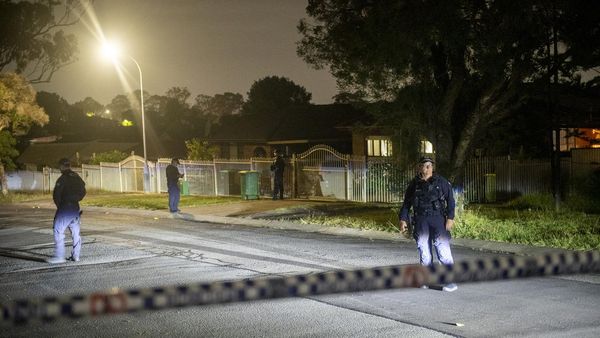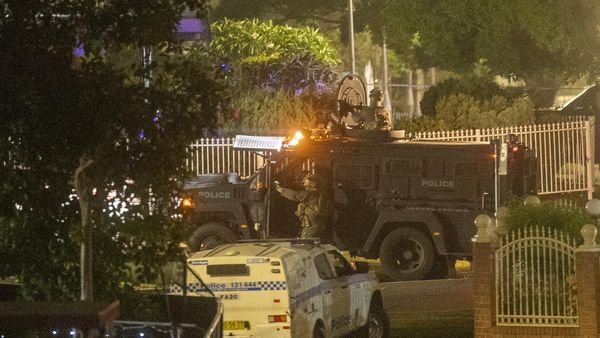In recent years thousands of students in higher education have seen their studies disrupted due to industrial action led by the University and College Union (UCU) in their fight against Vice Chancellors. In November 2022, the UCU led the largest university strike to date with over 70,000 staff members across the UK striking for better pay, pensions, and working conditions.
On April 20, members of the UCU across 145 universities in the UK began a marking and assessment boycott. This action began after staff were sent pay deduction threats of up to 100% from some universities.
The boycott means that some staff who are members of the UCU stopped doing all work related to students’ summative assessments, including exam preparation, marking, and invigilating.
This will have a direct impact on current students and leave many final year students worried about graduation and future employment if they do not have their assessments marked before the end of the academic year. Wales Online spoke to students from Cardiff and Swansea Universities to hear first-hand how previous and ongoing industrial action has impacted their studies.
Susan’s experience

Susan (not her real name) has been studying at Cardiff University since September 2019. By December 2019 Susan said she had lost “too many hours” of learning due to strikes. In March 2020, six months into Susan’s degree, students had to switch to online learning due to the pandemic.
Susan said: “Each year of my degree has been impacted by something out of my control. For four years, I have dealt with strikes, Covid, then Covid and strikes and then strikes again. It’s been an utter nightmare of a degree and I have received 0% compensation. This boycott, for me, is the last straw.”
Susan said her opinion on lecturers striking has changed drastically over the years. She explained: “I was for the strikes in my first year of university and supported the lecturers but now it seems like a joke at my expense. All this perseverance and I don’t even know if my work will be marked in time despite me working hard to meet the deadlines. I don’t even know if my graduation date is reliable anymore.”
The hours of learning Susan has lost over her four years at university has left her questioning the validity of her degree. She said: “It has made me feel as if a degree really isn’t that important. If I can pass a module despite missing half of the lectures and seminars, is what they are teaching me really that valuable or worthwhile?”
Susan respects lecturers' right to strike but said she cannot support something that she feels puts her at a disadvantage. She explained: “University to me seems more like a business, not a school, and I feel like an unsatisfied customer who should be compensated for their financial loss.”
She continued: “The detachment between teachers and students makes me feel like if I supported the strikes I would be defending a stranger who already has a career. Whilst I’m on the other side - unemployed, in debt, and unsure of whether my education is substantial for the career path I’d like to follow.”
Susan summarised her studies at University as “£40,000 down the drain, all for a piece of paper that doesn’t mean that much to me anymore.”
Frank’s experience

Frank (not his real name) is in his fourth and final year at Cardiff University. Frank said every year of his studies have been impacted by strikes. “I guess it all makes sense since the whole point is that it’s meant to be disruptive,” he said.
For one of his modules, Frank said he only received two lectures before his first assessment was due. “It was a massive pain because we really hadn’t learnt enough to write a good quality piece. I wouldn’t have minded as much if we got a delay, but we still had to submit our piece on the deadline,” he said.
Instead of hoping for the best, Frank said: “I just ended up pestering my lecturers over emails with questions, since I thought I was owed that much. But I know that a bunch of the students wouldn’t have done that, and they have probably lost marks because of it. It just makes me tired of university, and it sort of makes you feel like you don’t matter that much to the staff.”
Despite all of this, Frank firmly supports his lecturers' right to strike. “I’d be striking too if I was in their position,” he said. “But I also have the right to be annoyed since I’m not getting any reimbursement and am simply just missing out on teaching,” he added.
Frank believes it is difficult for students to show their frustration towards university management. He said: “I would want to take it out on the union of Vice Chancellors, but they’re sort of a faceless entity, so it’s difficult to get riled up against them. They’re just the people who we receive robotic emails from every now and then which are filled with the most corporate-say-nothing speak ever.”
Lucy’s experience
In contrast to Susan and Frank, Lucy (not her real name) said she believes she has had a much better experience with strike action than most students.
Lucy is a third-year engineering student at Swansea University and said given the practicality of her course she is very grateful that her lecturers chose to carry on teaching during the strikes. Lucy believes she has lost just over an hour of teaching to strikes this year, which she said is considerably less than most of her friends.
“I support the strikes because I understand the reasoning behind it, but it makes the workload of students inconsistent and unpredictable,” she said.
Like every student spoken to in this article, Lucy said: “I think universities should refund students for lectures missed due to strikes. You wouldn't pay full price for an incomplete job, would you?”
Jane’s experience

Jane (not her real name) is a fourth-year student at Cardiff University. As she completes her final year of studies, she said the added stress of further strike action is far too overwhelming.
Due to the marking and assessment boycott, Jane is concerned she will have little to no contact with her lecturers as she writes her dissertation, prepares for exams, and submits her essays. “Usually, I wholeheartedly agree with striking. However, I think the issue surrounding university lecturers striking is more complex and I sometimes struggle to support the cause,” Jane said.
Through strike action, Jane said she feels some lecturers show little respect for her time. She explained: “It’s disappointing that some lecturers will tell you or at least hint that they will be striking, whilst others will diligently stick to the Union’s guidance about not telling us whether they’ll be in. As a final year student with four modules, a dissertation, and part-time work, my time is extremely valuable too.”
Speaking to her lecturers, Jane said: “Lots of us want to support you, but for those lecturers who insist on making us attend lectures and meetings just to find out they’ve been cancelled, it sadly makes us lose faith both in you and in the cause.”
Nicole’s experience
Nicole (not her real name) is a second-year student at Swansea University. Nicole believes she has lost over 40 hours of learning due to strike action. “I personally feel the strikes have impacted my university studies a lot, especially with how my contact with lecturers has been cut off when I have deadlines coming up,” she said.
Despite this, Nicole does support her lecturers in their strike action. She explained: “I do understand that they need to have a visible effect on how the university is run and that is why so many lectures are cancelled. But I don't think the university understands how we as students only have one chance at university and many of us are paying ridiculous amounts of money to not even be able to go to our seminars.”
Every student spoken to in this article said they believe that universities should automatically reimburse students for their loss of learning due to industrial action.
In a response, Jo Grady, general secretary of the UCU, offered thanks to the students who continue to support the strikes and said: “It's important to recognise that the fault for ongoing disruption lies squarely at the feet of vice-chancellors who refuse to use universities' vast wealth to make long overdue improvements to staff pay and conditions. Students realise that when staff are overworked and underpaid it hurts them. We do not want this disruption to go on any longer than it needs to, but the status quo cannot continue. We urge students to contact their vice chancellor and tell them to get back around the table with a fair offer.”
A spokesperson for Swansea University replied to Lucy and Nicole’s statements and said: “Measures are in place to minimise the disruption to our students throughout the period of ongoing industrial action. We ensure that we keep our students updated at all times and are in regular and close discussion with the Students' Union, as well as meeting regularly with our local branch of the UCU.”
Cardiff University were contacted for comment on their students' accounts. Speaking previously, the university said: “It is important to stress that this is a national dispute over levels of pay and pensions. The University cannot solve these issues independently. We do appreciate our staff. Staff are already receiving the, albeit disputed, 3% pay uplift in their pay.”
The institution also highlighted the 5 to 8% annual pay award and the introduction of an interim uplift of £1,000 or 2%, effective from March 2023. The University spokesperson continued: “We recognise the impact of the current cost-of-living crisis. In recognition of the extremely challenging financial position that staff face, the University has made a number of one-off (pro-rata) payments to staff.”
Read next:
Plans submitted for over 200 new homes in Cardiff
Woman makes heart-breaking promise to 'heart of gold' husband killed in crash
Former top Welsh political consultant to appear in court on indecent images charges
The real story behind Steeltown Murders and the Saturday Night Strangler behind them







